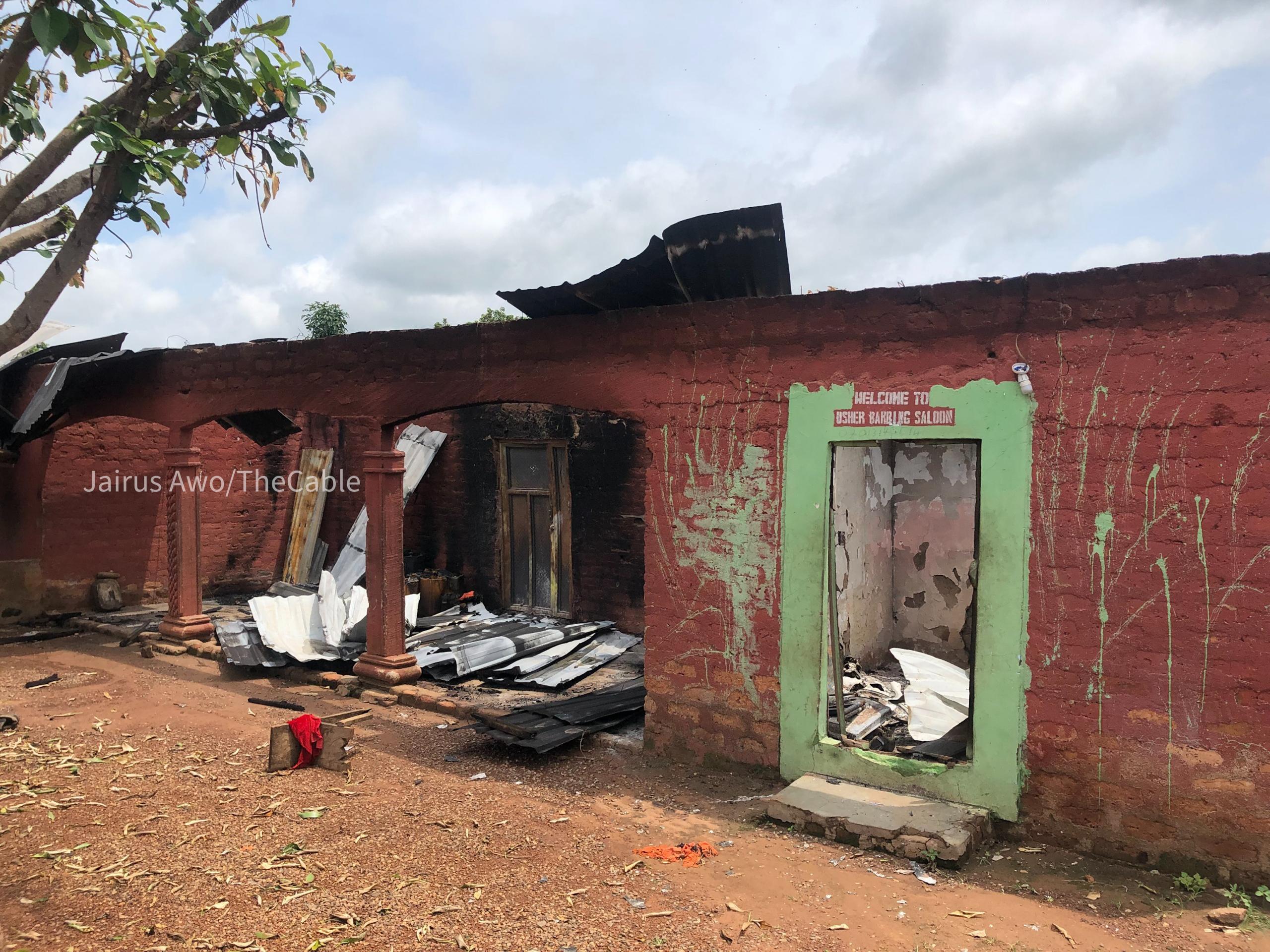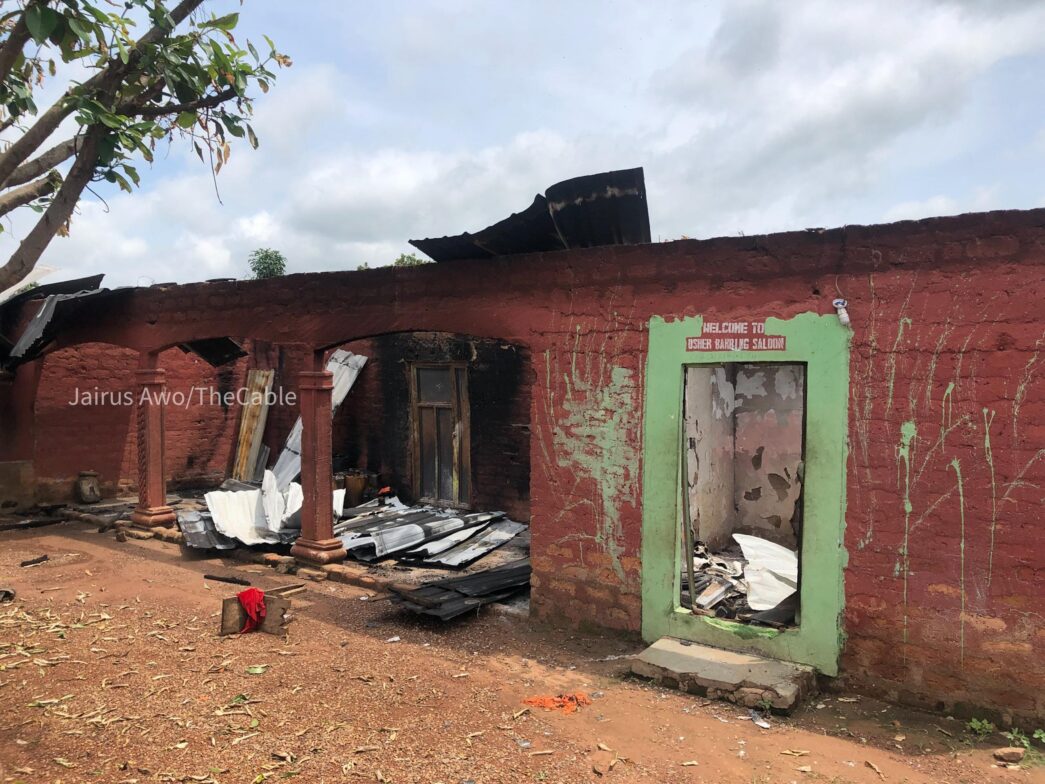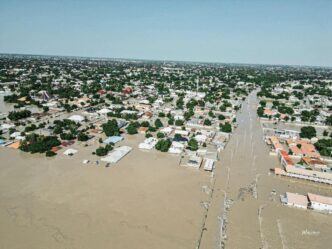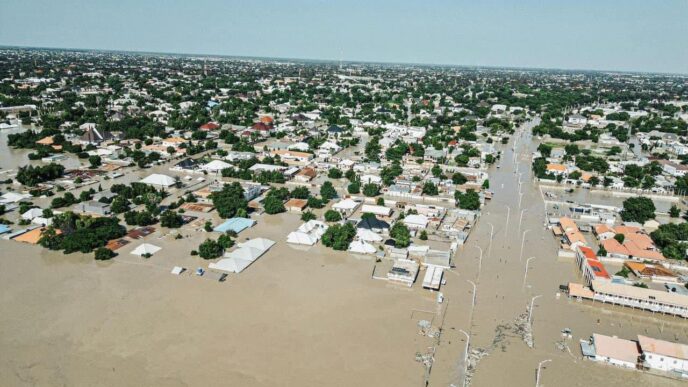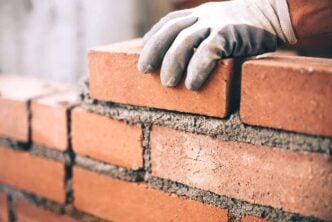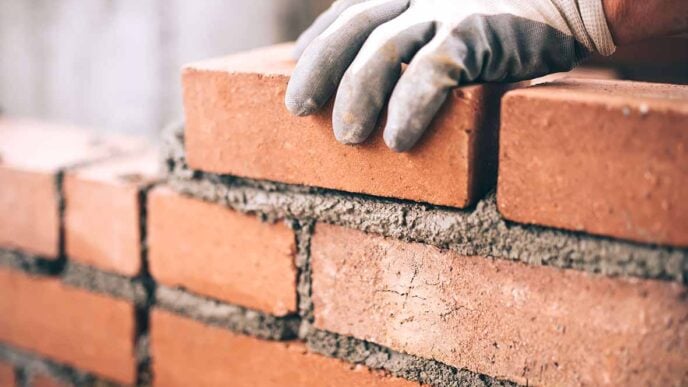BY GOODTIME OKARA
The recent massacre in Yelewata, Benue state, where armed assailants killed over a hundred villagers and razed homes and markets, has once again jolted the nation. These tragedies have become disturbingly routine. Yet, the national conversation often ends with casualty figures and fleeting security analyses. Beneath the surface lies a deeper, more enduring crisis: Benue’s escalating housing emergency – a crisis that remains largely hidden from public discourse.
This is not merely a crisis of shelter. It is a crisis of identity, security, and survival. When homes are destroyed, families lose more than walls and roofs – they lose the spaces where memories are made, where children grow, and where communities thrive. A home is not just a structure; it is a sanctuary. And when it is lost to violence, rebuilding is not just about bricks and mortar; it becomes a question of whether it is safe, or even possible, to return.
Benue state, already burdened with one of Nigeria’s highest populations of internally displaced persons (IDPs), now faces a housing deficit that worsens with every violent outbreak. As of 2021, over 1.6 million residents had been displaced. Today, that number continues to rise, with hundreds of thousands still living in overcrowded, under-resourced camps. These camps, initially designed for short-term refuge, have become semi-permanent settlements. What was meant to be temporary has turned into a prolonged state of limbo. For many, the dream of returning home has faded into something more elusive: the hope of finding a new place to belong.
Advertisement
The destruction of rural communities has led to the depopulation of entire villages. Over the past decade, research shows that more than 54,000 homes have been destroyed in Benue alone. Families, traumatised and fearful, are unwilling to return to places where safety cannot be guaranteed. This has triggered a slow but steady migration toward urban centres like Makurdi, where already overstretched housing infrastructure is now buckling under pressure.
In these urban areas, displaced families often find themselves in informal settlements—cramped, unsanitary, and insecure. Makeshift shelters replace the homes they once knew. Access to clean water, sanitation, and healthcare is limited. Children drop out of school, and livelihoods vanish. The social fabric of entire communities begins to unravel. Without proactive urban planning, these settlements risk becoming new epicentres of poverty, disease, and despair.
Beyond the human toll, the housing crisis in Benue reflects a larger economic and developmental disaster. Farmers who once lived and worked on their ancestral lands are now landless. Investments in rural homes, crops, and infrastructure are wiped out with each attack. Many displaced people lack the financial means—and increasingly, the emotional will—to return and rebuild. Without credible security guarantees, they see no future in their former homes. Yet without resettlement or permanent housing options, their displacement threatens national stability.
Advertisement
A GlobalGiving report reveals that among 98 survivors (mainly women and children), many remain homeless, enduring hunger and trauma, sleeping in the open or ruined villages. Their experiences reflect the quiet anguish of surviving such atrocities.
Rebuilding must go beyond emergency relief. It must be part of a long-term, strategic plan that recognises the deep connection between housing, security, and peace. Transitional shelters are a start, but they should lead to permanent, resilient housing solutions supported by land rights, access to credit, and government oversight. Community-driven planning, safe zones, and investment in rural infrastructure are vital to stopping the bleeding of Benue’s countryside.
Urban development policies must also evolve. The migration from rural to urban areas is not a temporary phenomenon; it is a survival strategy. The Nigerian government must prepare for the permanent absorption of displaced populations through affordable housing schemes, improved sanitation, and land regularisation. If not, the informal settlements of today will become tomorrow’s humanitarian crises.
This is not just a technical or logistical problem. It is a moral imperative. In the aftermath of the killings, survivors are left with nothing but their grief. Their homes were not just buildings—they were evidence of existence, anchors of community, and symbols of dignity. If the state and federal governments fail to act, they do more than abandon these citizens—they erase them.
Advertisement
Benue’s future does not rest solely on counterinsurgency operations or military deployments. It hinges on the state’s ability to offer its people something even more fundamental: a safe and permanent place to live. A home. Because when shelter is lost and not restored, the violence never truly ends. It simply migrates from the battlefield to memory, from physical destruction to psychological despair.
To rebuild homes is to rebuild hope. To protect homes is to protect the soul of a people. The housing crisis in Benue is not a side effect of conflict. It is a central battleground in the fight for peace, dignity, and justice. If we are to honour the lives lost in Yelewata and beyond, we must do more than count the dead. We must fight for the living. And that fight begins with a roof, a door, and a place to call home.
Okara is a lawyer and property law lecturer at a UK-based university, with research interests in housing, homelessness, and equitable housing solutions across the Global South
Advertisement
Views expressed by contributors are strictly personal and not of TheCable.
